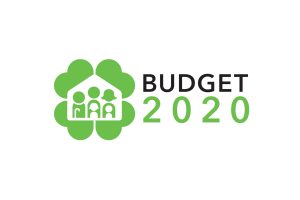On 26 March 2020, Singapore’s Deputy Prime Minister and Finance Minister Mr Heng Swee Keat unveiled the Resilience Budget, a second stimulus package in response to the COVID-19 pandemic. Together with the Unity Budget announced on 18 February 2020, the government will be dedicating close to $55 bn, amounting to 11% of Singapore’s GDP.
 Commenting on the Resilience Budget, Colliers International said, the Singapore government has announced a bold and decisive supplementary budget in Parliament on March 26, 2020 to tackle the deepening impact of the COVID-19 pandemic on its economy.
Commenting on the Resilience Budget, Colliers International said, the Singapore government has announced a bold and decisive supplementary budget in Parliament on March 26, 2020 to tackle the deepening impact of the COVID-19 pandemic on its economy.
Known as the Resilience Package, this second stimulus package – valued at an eye-catching SGD48 billion – will see Singapore drawing on national reserves to fund the support measures.
The Resilience Budget comprises new and enhanced measures aimed at helping to support businesses and households, protect livelihoods, as well as to strengthen social resilience, so as to emerge stronger from the crisis. Many of the measures in the Resilience Budget are also laser-focused on helping sectors most affected by the COVID-19 outbreak – such as the aviation and tourism-related industries.
The extra stimulus will take the government’s COVID-19-related relief measures to about SGD55 billion, representing 11% of gross domestic product.
Ms Tricia Song, Colliers International’s Head of Research for Singapore said:
“We note that the Resilience Package did not offer measures that private housing developers had been hoping for – such as an extension of project completion timeline under the Additional Buyer’s Stamp Duty rules. That said, the stimulus package did provide other initiatives that will either directly or indirectly support the real estate sector, as outlined below:
| Measures | Supplementary Budget on 26 March | Budget on 18 Feb | Positive for sector/ group |
| Property tax rebates for qualifying commercial properties including shops and restaurants | 100% | 15% | Retail malls |
| Property tax rebate for hotels, serviced apartments, tourist attractions, MICE venues | 100% | 30% | Hospitality |
| Property tax rebate for Integrated Resorts | 60% | 10% | |
| Property tax rebate for non-residential properties | 30% | None | Industrial, warehouse, office landlords |
| Rental waivers for non-residential tenants of state properties
Such as hawker centres, JTC, SLA, HDB, URA, BCA, NParks, and PA |
0.5 to 3 months | 0 to 1 month | Non-residential |
| Deferment of income tax payments for companies and self-employed persons | 3 months | None | Industry-wide |
| Jobs Support Scheme | 25% of monthly wages for every local worker in employment, capped at SGD4,600, for 9 months til end-2020 | None | Industry-wide |
| Enhanced Jobs Support Scheme for Aviation, Tourism, Food Services, Land Transport, Arts & Culture sector | Up to 75% wage offset, capped at monthly wage of SGD4,600 | None | Industry-wide |
| Cash payout and grocery vouchers to households | SGD300-900 | SGD100-300 | Industry-wide |
Source: Colliers International, Ministry of Finance – Resilience Budget
In particular, the property tax rebates for retail malls have been significantly boosted from just 15% to 100%. Depending on how badly hit their tenants are, we believe these tax rebates are broadly sufficient to provide for at least three months of 50% tenant rental rebates.
The hospitality sector which has borne the brunt of travel curbs arising from the pandemic will also see property tax rebates go up from 30% to 100%. Notably, the integrated resorts will get a 60% property tax rebate, up from 10% in the previous budget package. Meanwhile, the office, industrial and warehouse landlords – who were non-beneficiaries in the Budget announced in February – could now enjoy 30% property tax rebates.
These property tax rebates, alongside the deferment of income tax and various jobs support schemes will go some way to help improve companies’ cashflow and hopefully see them tide through this challenging time. Business viability is important in maintaining occupancy rates at commercial buildings.
Meanwhile, the enhanced cash payout to Singaporeans aged 21 and above as well as grocery vouchers – and initiatives to save jobs – will help households with their finances and support consumption.
Taken together, we believe the measures will help to buttress Singapore’s economy amid this mighty storm that is the COVID-19 pandemic.
Commenting on the Resilience Package CBRE noted that drawing up to $17 bn from its reserves, this will be the second time in history that Singapore has drawn down on its reserves after 2009. The Resilience Budget will be worth $48.4 bn, surpassing the record $20.5 bn stimulus package which had helped Singapore tide over the 2009 Global Financial Crisis and is more than seven times the $6.4 bn in the first tranche of COVID-19 support measures.
Mr Desmond Sim, CBRE’s Head of Research for Southeast Asia, commenting on the Resilience Budget said:
“This additional package was widely anticipated and seen as a necessary cushion with Singapore not spared from the pandemic; its economy contracted 2.2% y-o-y in the first quarter of 2020, according to advance estimates released by the Ministry of Trade and Industry (MTI) on 26 March 2020. MTI also further downgraded Singapore’s GDP growth forecast for 2020 to -4.0% to -1.0% from -0.5% to +1.5% previously, signifying that the economy is expected to register its first full year recession in two decades.
This Resilience Budget consists of three main thrusts: 1) Save jobs, supporting workers and protecting livelihoods, 2) Helping businesses overcome immediate challenges, and 3) Strengthening economic and social resilience.
1) Save Jobs, Support Workers, and Protect Livelihoods
The schemes introduced aim to keep workers employed during this period of uncertainty. These include:
a) Government co-funding ratio (Enhanced Jobs Support Scheme) of wages for every employed local worker
| Before | After | |
| Local workers | 8% | 25% |
| Food services sector | 8% | 50% |
| Aviation & tourism sector | 8% | 75% |
b) Enhanced Jobs Support Scheme totalling to $15.1 bn over three tranches in May, July and October
| Before | After | |
| Monthly qualifying wage | $3,600 | $4,600 |
| Scheme duration | 1 quarter | 3 quarters |
| Enhanced care and support | Help for families with young children |
| Triple one-off cash payout to $300-$900 for all adult Singaporeans aged 21 and above | Additional cash payout to each parent tripled from $100 to $300 |
| Enhanced workfare special payment | Enhanced grocery voucher |
| Cash payout of $3,000 this year | Total of $400 in 2020 and 2021 for needy Singaporeans |
d) Greater flexibility on fees and loans
– One-year freeze on government fees and charges
– Student loan relief: one-year suspension of loan repayment and interest charges
– HDB mortgage arrears relief: 3-month suspension of late payment charges
This is including a slew of other policies that provide support for self-employed persons, additional training, support for the unemployed and lower- and middle-income Singaporeans.
2) Help Businesses Overcome Immediate Challenges
The government announced numerous initiatives to ease cash flow for businesses. These include:
| Enhanced property tax rebate for 2020 | Enhanced rental waivers for government – managed properties |
| – 100% rebate for qualifying commercial properties such as hotels, serviced apartments, tourist attractions, shops and restaurants – 30% rebate for other non-residential properties – Landlords are urged to pass these savings to tenants |
– Increased rental waiver from 1 month to 2 months, for stallholders in hawker centres managed by NEA or NEA-appointed operators – Increased rental waiver from 0.5 months to 2 months for eligible tenants of government agencies – All other non-residential tenants of government agencies receive 0.5 months of rental waiver |
*Property tax rebate from 1 Jan 2020 – 30 Dec 2020
To tide over this outbreak, there will be a one-year freeze on government fees and charges from 1 Apr 2020 to 31 Mar 2021. Various measures were also introduced to support affected sectors such as the aviation, tourism, food services, land transport, as well as the arts and culture industry. $90 m will also be set aside to help the tourism industry rebound when the time is right.
3) Strengthen Economic and Social Resilience
Mr. Heng reassured Singaporeans that Singapore has built up a healthy stockpile of health supplies as well as food. There has also been additional support to achieve the ‘30 by 30’ vision to produce 30% of our food locally by 2030 for food security.
The government acknowledges that it is costly for employers and households to implement safe distancing measures and that the government will offer help to cushion the impact.
CBRE Research Views
Overall, this stimulus package was more targeted to support Singaporeans and businesses, fortifying the original stimulus package (announced on 18 Feb 2020). It aims to provide a shot in the arm to cushion the impact and limit repercussions through the economy; relieving businesses of cashflow, credit and operational costs issues, as well as putting more cash in the hands of consumers.
With enhanced support for daily expenses, we expect domestic consumption to be shored up especially for non-discretionary items such as groceries and pharmaceutical products.
Landlords are expected to benefit from increased property tax rebates and highly encouraged to pass these on to tenants. All non-residential properties will enjoy a 30% property tax rebate, which is equivalent to 3% of rental relief per annum for non-residential properties. As for qualifying commercial properties such as hotels, serviced apartments, tourist attractions, shops and restaurants, the property tax rebate has been increased up to 100%. This translates up to 10% rental reprieve per annum for these qualifying commercial properties.
This additional support will further incentivise landlords to work with their tenants on easing their rental costs. In addition, both landlords and tenants can also focus on their cashflow with the deferment of income tax as well as the one-year freeze on government fees and charges. Going forward, we expect landlords to work more closely with tenants.
As the world continues to grapple with this pandemic, the Singapore government has tapped into our reserves to provide a package that aims to buffer the impact for all Singaporeans and businesses. Although it has been reported that this pandemic is likely to last for more than a year, it was mentioned that Singapore could dig deeper into our reserves for another stimulus, should the need arise. In addition to this financial stimulus, it remains of utmost importance to be socially responsible.
Keep calm and carry on.”







